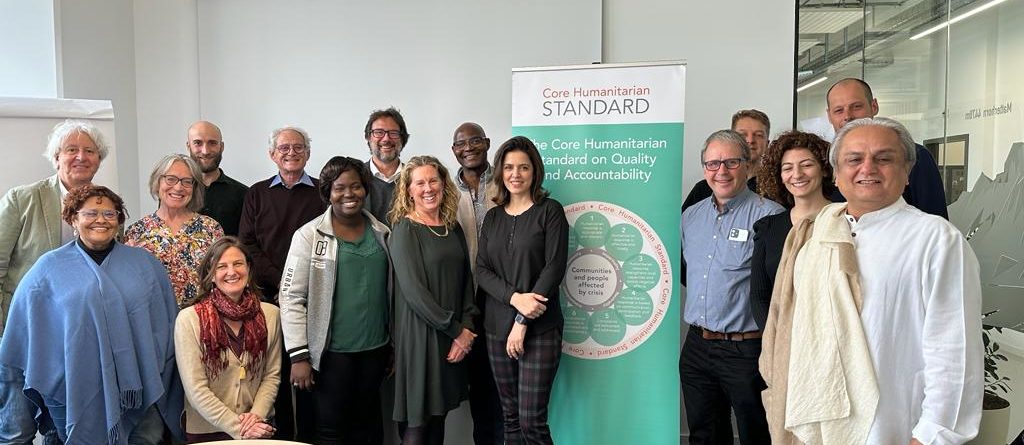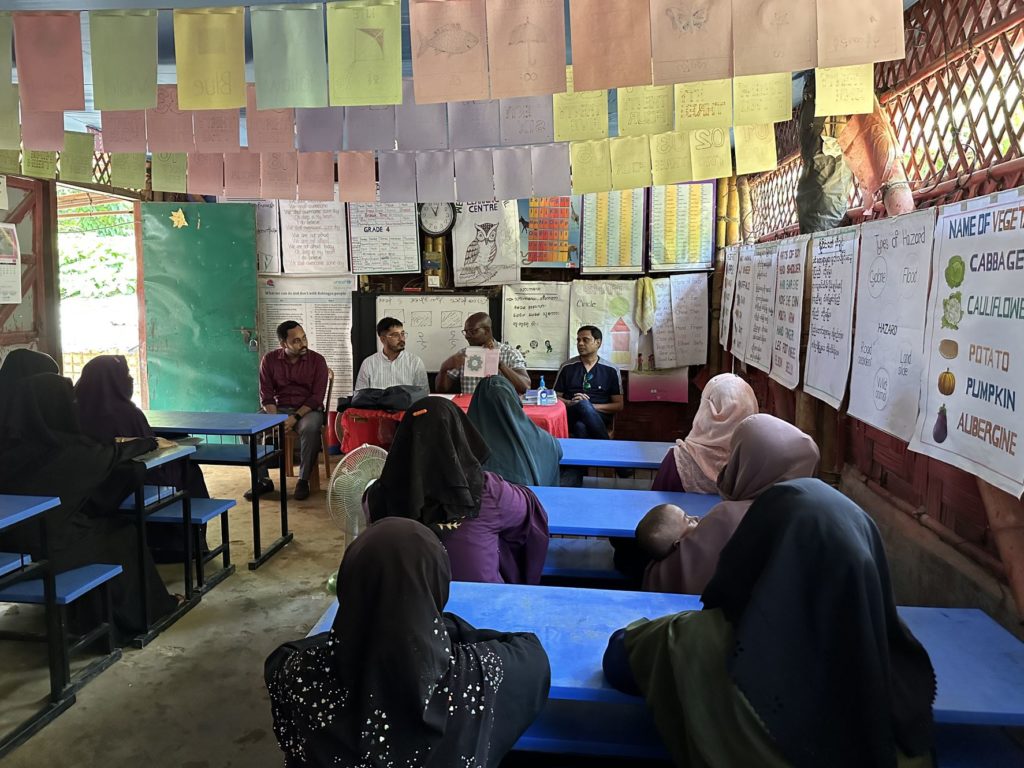Unleashing the potential for crisis-affected people to lead: launch of a stronger CHS
In anticipation of the official launch of the updated Core Humanitarian Standard (CHS) on 21 March, we hear from the CHS Revision Steering Committee Co-Chairs on why this marks a pivotal moment for the aid community to get behind the stronger Standard. With Mihir R. Bhatt, Director, All India Disaster Mitigation Institute (AIDMI) and Matthew Carter, CEO, Depaul International.
What have your roles been in the CHS revision?
Mihir: My journey began with a fierce desire to contribute my insights gained from years of leading AIDMI, a local community-based organisation in Gujarat, India since 1995. Overseeing the process of updating the CHS meant I could share the lesson I’ve gained from decades of linking local communities to international system change initiatives. I was proud to ensure that the future direction for the CHS was set by truly diverse and global voices, representing all sides of local, national and international solidarity and support. This is evident in the numbers: more than 4,000 contributors across 90 countries had their say on a wide range of updates.
Matthew: I’ve been involved in the overhaul and strengthening of the humanitarian system and working to ensure greater accountability for 27 years now and have had the privilege of witnessing the evolution of the CHS first-hand, since the seeds of the were first sown in response to the glaring lack of accountability in Rwanda and which I witnessed fist hand. . Today, I’m still just as driven by a passion to practically improve how crisis-affected people are supported.

The CHS Steering Committee, Geneva April 2023, including Co-Chairs Matthew Carter (fifth from right, next to banner) and Mihir R. Bhatt (far right). Credit: CHS Alliance
How did you find the revision process?
Matthew: For me, the journey of the CHS has been marked by it being a sincerely collective effort to improve humanitarian and development practice. Particularly noteworthy has been the emphasis on directly involving local communities, reaffirming the importance of their voices in shaping our action.
“Through the review process, the CHS has not only reaffirmed its founding principles but also demonstrated the vital concepts of equity, inclusiveness, and collaboration.”
This means that while the structure of the Standard has changed, its core elements remain consistent, with a clearer focus on putting people at the centre of all we do.
Mihir: I found it very uplifting that we achieved our aims for diverse voices to be heard and incorporated in the revision process. From one-to-one consultations to engaging with local communities in places like Dakar, Panama City and Cox’s Bazar, we left no stone unturned in gathering feedback and identifying challenges to people and groups using the CHS to make aid better. The revision process itself was a testament to inclusivity and forward-thinking. We welcomed challenging viewpoints, navigated through disagreements; all with a focus on shaping the Standard to address current and future needs. It was an exhaustive yet rewarding journey, fuelled by the collective commitment of everyone involved to move ahead together.

People supported by CHS Alliance member COAST Foundation in Bangladesh telling us how to make the CHS work better for them. Credit: CHS Alliance.
What are you most excited about in the updated CHS?
Mihir: Firstly, the renewed focus on placing crisis-affected people at the heart of aid efforts. Secondly, the simplified structure and clearer language. These improvements really empower people to be active participants in their own recovery and hold power to account no matter the context. Thirdly, the integration of “green” humanitarianism underscores the importance of sustainability and environmental impact in our actions.
I firmly believe that these elements will have a profound effect on our work, particularly in shifting the balance of power for marginalised communities, local civil society groups and future generations.
Matthew: I welcome the updates that will allow the CHS to gain traction well beyond traditional humanitarian settings. The wording is now more accessible and inclusive, so it’s easier for people or organisations who do not fit the narrow humanitarian mould to meet their commitments when providing support during any kind of crisis. This unleashes so much potential for greater collaboration.
Why should people come join the launch of the revised CHS?
Matthew: As we approach the launch of the improved Standard, I believe it’s now a pivotal moment for everyone in the global community that believes in solidarity, cooperation and supporting vulnerable people in their moment of need.
“The stronger CHS, with its absolute emphasis on giving voice to those affected by crises and taking community-based approaches, stands as a beacon of hope amidst global turmoil.”
Mihir: As we get closer to the launch event, I am filled with anticipation and optimism. This moment marks a historic turning point in humanitarian and development thinking and practice. I urge others to join us in celebrating this milestone and embracing the transformative potential of the stronger CHS. Together, we can chart a course towards a more inclusive, sustainable future for our collective action.
Matthew: Yes, the launch event not only celebrates the culmination of years of collective effort but also highlights the potential of the CHS. By coming together, both virtually and physically, we can uplift and recognise the extraordinary accomplishment of strengthening the global Standard that allows people affected by crises to be heard, to lead, and to determine what the best response is for them. I think that’s an extraordinary accomplishment for the sector and for the world.
- Join Mihir and Matthew at the hybrid launch of the updated CHS, taking place 21 March 2024, 16-17h CET.
- Get answers to your questions about updates to the CHS, and how it affects your work: CHS Revision FAQs.
